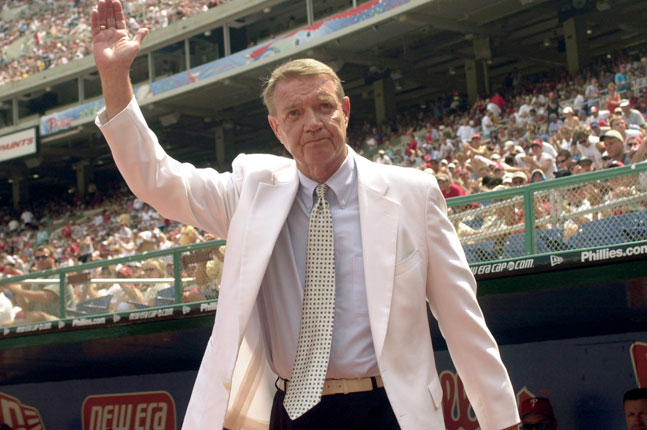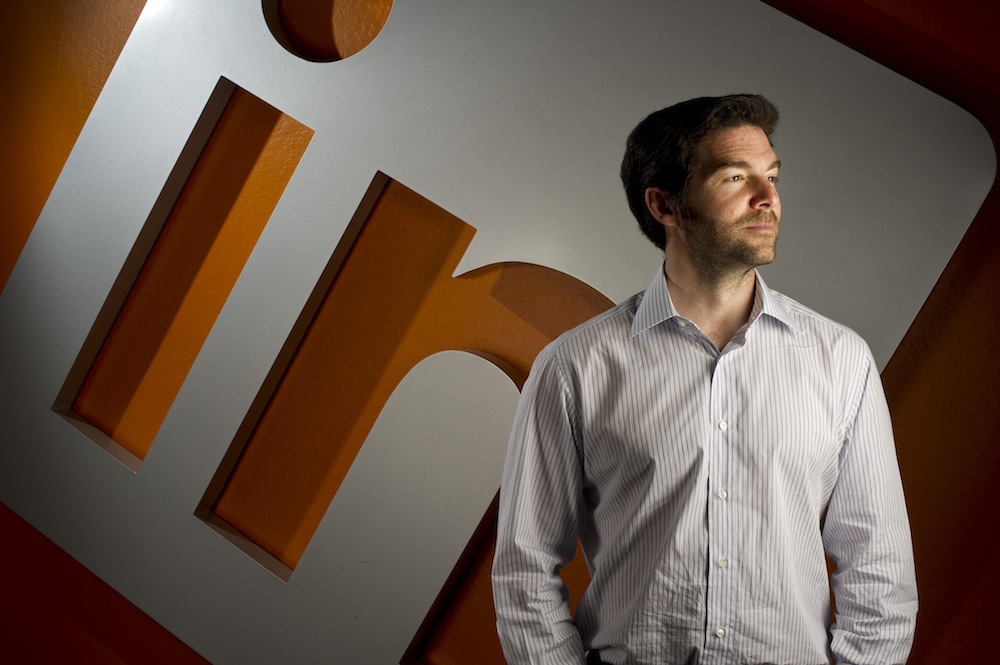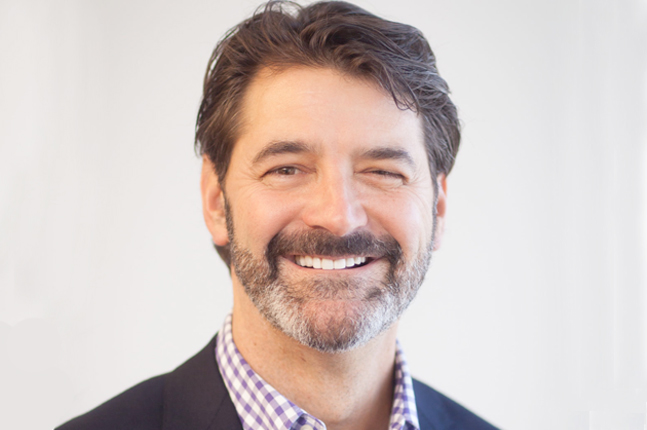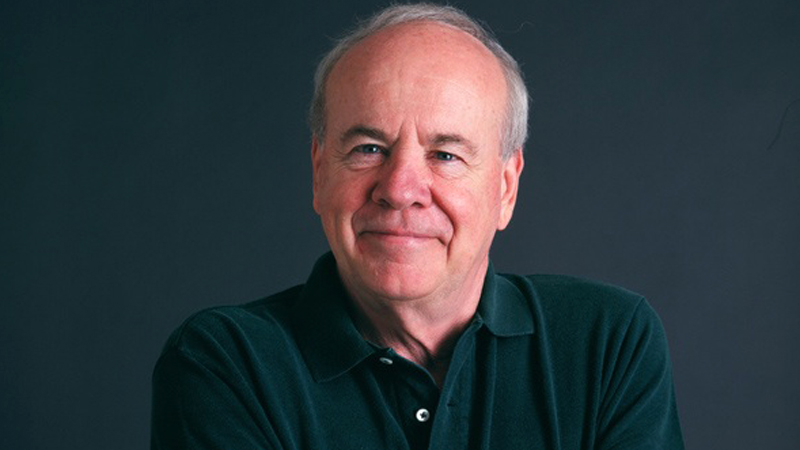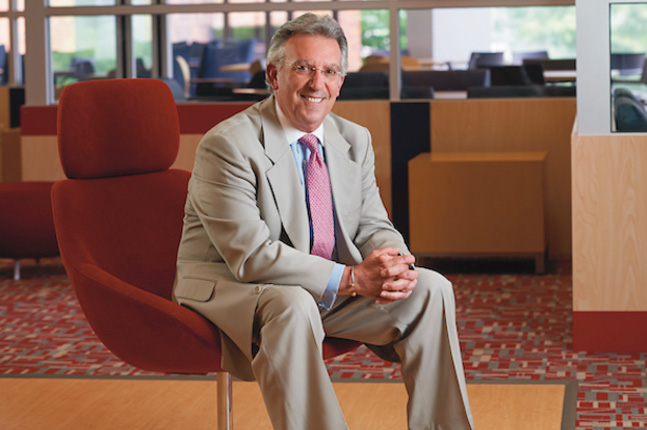Harry Norbert Kalas was born in Chicago, Illinois, on March 26, 1936. He was raised in Naperville, a suburb outside Chicago, by a minister and his wife. At a young age, Harry fell in love with baseball on his first trip to a major league game. As Kalas recalls, ‘The first game my dad took me to was the White Sox and the Senators at Comiskey Park. It was a rainy day so he was able to get tickets right behind the Senators’ dugout. I’m 10 years old, all wide-eyed at my first major league game. Since it rained there was not batting practice and Mickey Vernon of the Senators poked his head out of the dugout and sees this wide-eyed kid. He picks me up, takes me to the dugout, gives me a baseball that began my love of the Senators and baseball.”
Kalas’s love affair with baseball began at age 10 and never looked back. Though he played little league baseball, Harry knew he would never make it to the big leagues by playing ball. He had the pleasure of growing up listening to the Chicago announcers like Jack Brickhouse and Bob Elson, and he knew he would love to do baseball play-by-play announcing.
After graduating from Naperville High School in 1954, Harry Kalas began his collegiate education at Cornell College in Iowa. There, he first became aware of the gift of his voice. A blind speech professor told the then-freshman Kalas that he had “the kind of voice that could make it in radio,” which acted as a catalyst for Kalas’s career. Transferring to the University of Iowa, Kalas became involved with the university radio station, WSUI, and broadcasted a wide range of sports from football and baseball, to swimming and track and field. Upon graduation, in 1958, Harry Kalas received a bachelor of arts degree in speech, radio, and television.
On the same day that his collegiate life ended, Kalas was drafted into the army and sent to Hawaii as a heavy weapons infantryman. After two days on the job, he was pulled off the assignment to do interviews of soldiers that would be sent home to their families. His two-year stint in the military passed, but he remained in Hawaii as the broadcaster for the Pacific Coast League Hawaii Islanders from 1961 to 1965. He was known for recreating broadcasts of away games in the studio.
Harry Kalas’s big break came at a baseball management convention. One of 200 applicants, Kalas landed the job as the broadcaster of the new Houston Astros. As the new voice of the new team and stadium, Kalas made a name for himself by calling a few innings per game until 1970. When Bill Gilles, his colleague, moved to Philadelphia, Pennsylvania, Kalas went with him.
The City of Brotherly Love and Harry Kalas were a match from the beginning. After winning over the hearts of the fans who had been loyal to his predecessor, Harry Kalas became the voice of the Phillies. The 1971 season began with the opening of Veterans Stadium in which Kalas was honored to be the Master of Ceremonies. He also had the pleasure of meeting and working with Richie “Whitey” Ashburn. The two hit it off immediately and became best friends while entertaining Philadelphia. After 27 years in the booth together, Ashburn died in 1997, taking a piece of Kalas with him. There is not a game in the booth where Kalas does not mention “Whitey” at least a handful of times.
Harry Kalas is best known for his trademark home-run phrase, “It’s outta here.” In actuality, the phrase came from Larry Bowa, former Phillies shortstop and manager, while they were watching game film together. Since that day in 1971, “It’s outta here” has been used and quoted countless times, including during Mike Schmidt’s 500th career home-run, among other notable plays. Kalas is known for his smooth delivery and, as the Baseball Hall of Fame put it, his “uncanny ability to connect with his listeners.” Admiration for him goes beyond the fans and extends to the players. Curt Shilling, a former Phillies pitcher, describes this admiration: “Harry embodies everything that is good about sports, both on and off the field. He’s one of the few people who can create lifelong memories with his voice.”
Kalas had the pleasure of once again being the Master of Ceremonies in 2003, this time to close Veterans Stadium. He called the first game in the new Phillies stadium, Citizens Bank Park. A restaurant behind the scoreboard is affectionately called “Harry the K’s” in honor of the beloved sportscaster. Kalas has received many accolades from those in his field. He has been recognized 18 times as the Pennsylvania Sportscaster of the Year. Kalas has also been honored as the 2004 Person of the Year by the Broadcast Pioneers of Philadelphia and earned the Legacy of Excellence Award from the Philadelphia Sports Hall of Fame in the same year. Other local honors include the Board of Governor’s Award at the Mid-Atlantic Emmy Awards, the Ken Garland Lifetime Achievement Award at the Philadelphia AIR (Achievement in Radio) Awards, and the Lifetime Achievement Award from the Philadelphia Sports Congress.
On July 28, 2002, Harry Kalas received the ultimate honor as a sportscaster. Awarded the Ford C. Frick Award from the National Baseball Hall of Fame and Museum, Harry Kalas joined an elite group including Bob Elson, Curt Gowdy and By Saam, who all have “made a difference in baseball” according to the prestigious Hall.
Harry Kalas’s next contract was negotiated in 2006, and it kept him with the Phillies through the 2009 season. Commenting on his new contract in 2006, Kalas said, “I’m excited to be able to continue calling Phillies games. I really like the make-up of this club. The future – with Ryan Howard, Chase Utley and Jimmy Rollins – is very bright.” Kalas predicted the future well, and he got to call another winning season in 2007 when the Phillies made a remarkable comeback, taking the National League East Championship. He was heard singing “High Hopes” over the public address system when the championship was clinched.
In 2005, Kalas’s son, Todd, summed up his father’s feeling toward his job and his life: “There’s no aspect of what he does for a living that he doesn’t enjoy. At times he feels like he’s stealing because he’s doing exactly what he wants to do in life and getting paid for it…It’s great that the city has embraced my dad as much as he has embraced the city for 32 years…He’s the type of person that people feel comfortable coming up to and saying hi to and he always has the time to give back to them. It’s been a great love affair that dad and the Phillies fans have had.”
That “love affair” continued, heightened by his memorable call of the Phillies’ victory in game five of the 2008 World Series, which brought the franchise its second world championship. During the off-season, Kalas had surgery for undisclosed reasons.
On April 13, 2009, Kalas sat in the broadcast booth at Nationals Park in Washington, D.C., preparing for that afternoon’s broadcast. He was found in the booth unconscious and transported to George Washington Hospital, where he was pronounced dead. Phillies’s team president David Montgomery said, “We have lost our voice today.” Philadelphia Inquirer columnist Bob Ford wrote that “Philadelphia went quiet yesterday afternoon. Harry Kalas died at the ballpark, and the city lost its voice.” Major League Baseball Commissioner Bud Selig said of Kalas: “Major League Baseball has lost one of the great voices of our generation.Harry Kalas was an outstanding ambassador for the game … Baseball announcers have a special bond with their audience, and Harry represented the best of baseball not only to the fans of the Phillies, but to fans everywhere.”

